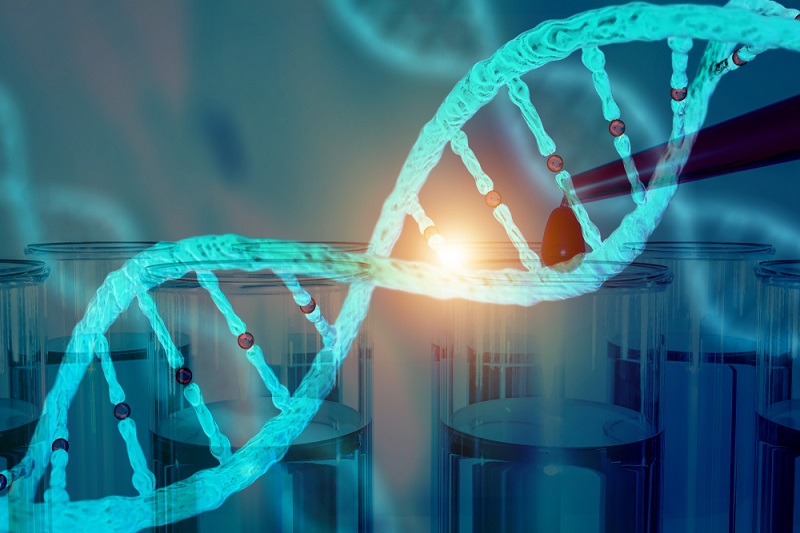Can Gene Therapy Cure HIV? US Gov't. Is Banking $100 Million On It.
Officials aim to make the therapies affordable and accessible to people around the world.

Get the world’s most fascinating discoveries delivered straight to your inbox.
You are now subscribed
Your newsletter sign-up was successful
Want to add more newsletters?

Delivered Daily
Daily Newsletter
Sign up for the latest discoveries, groundbreaking research and fascinating breakthroughs that impact you and the wider world direct to your inbox.

Once a week
Life's Little Mysteries
Feed your curiosity with an exclusive mystery every week, solved with science and delivered direct to your inbox before it's seen anywhere else.

Once a week
How It Works
Sign up to our free science & technology newsletter for your weekly fix of fascinating articles, quick quizzes, amazing images, and more

Delivered daily
Space.com Newsletter
Breaking space news, the latest updates on rocket launches, skywatching events and more!

Once a month
Watch This Space
Sign up to our monthly entertainment newsletter to keep up with all our coverage of the latest sci-fi and space movies, tv shows, games and books.

Once a week
Night Sky This Week
Discover this week's must-see night sky events, moon phases, and stunning astrophotos. Sign up for our skywatching newsletter and explore the universe with us!
Join the club
Get full access to premium articles, exclusive features and a growing list of member rewards.
The U.S. National Institutes of Health (NIH) wants to cure HIV and sickle cell disease with gene therapies, and will invest $100 million over the next four years towards that goal, the agency announced today (Oct. 23).
For this effort, the NIH will partner with The Bill & Melinda Gates Foundation, which will also invest $100 million.
Critically, the partnership aims to make the therapies affordable and accessible to people around the world, particularly in developing countries, where the burden of these diseases is greatest.
"This is a very bold goal, but we have decided to go big," Dr. Francis Collins, director of the NIH, said in a news conference today.
The effort aims to have the therapies ready for testing in clinical trials in the U.S. and sub-Saharan Africa within the next seven to 10 years.
Related: 10 Amazing Things Scientists Just Did with CRISPR
The majority of the 38 million people with HIV live in developing countries, with two-thirds living in Sub-Saharan Africa. For sickle cell disease, the majority of cases also occur in Sub-Saharan Africa.
Get the world’s most fascinating discoveries delivered straight to your inbox.
The NIH has been trying to find a cure for HIV for "decades and decades," said Dr. Anthony Fauci, director of The National Institute of Allergy and Infectious Diseases. Although current treatments with antiretroviral therapy (ART) are effective at suppressing the virus in the body, they are not a cure, and must be taken everyday. What's more, there are millions of people with HIV who don't have access to ART treatment.
Although scientists are working to develop gene-based cures for HIV, these approaches are often costly and would be difficult to implement on a large scale, Fauci said. For example, some of these therapies take cells out of a patient's body and then re-infuse them, an expensive and time-consuming intervention.
For this reason, the new collaboration will focus on developing cures that use "in vivo" approaches, meaning they happen inside the body, Fauci said. One example of this could be to remove the gene for the CCR5 receptor, which HIV uses to get inside cells. Another idea is to excise the HIV "proviral" DNA that has copied itself into the human genome and lurks in the body even after years of treatment.
Similarly, for sickle cell disease, the goal would be to develop an in vivo therapy that could repair the genetic mutation that causes the disease. This would require a gene-based delivery system that could selectively target the mutation.
"Beating these diseases will take new thinking and long-term commitment. I'm very pleased to see the innovative collaboration announced today, which has a chance to help tackle two of Africa's greatest public health challenges," Matshidiso Rebecca Moeti, the World Health Organization's Regional Director for Africa, said in a statement.
Still, much work would be needed to make sure these therapies are safe and effective.
"It is very clear we have a ways to go, which is why this is a 10 year effort to try and take that promise and turn it into a reality," Collins said.
Earlier this year, the Trump Administration announced a plan to end the HIV epidemic in the U.S. in 10 years.
- Unraveling the Human Genome: 6 Molecular Milestones
- 27 Devastating Infectious Diseases
- The 9 Deadliest Viruses on Earth
Originally published on Live Science.

Rachael is a Live Science contributor, and was a former channel editor and senior writer for Live Science between 2010 and 2022. She has a master's degree in journalism from New York University's Science, Health and Environmental Reporting Program. She also holds a B.S. in molecular biology and an M.S. in biology from the University of California, San Diego. Her work has appeared in Scienceline, The Washington Post and Scientific American.
 Live Science Plus
Live Science Plus










